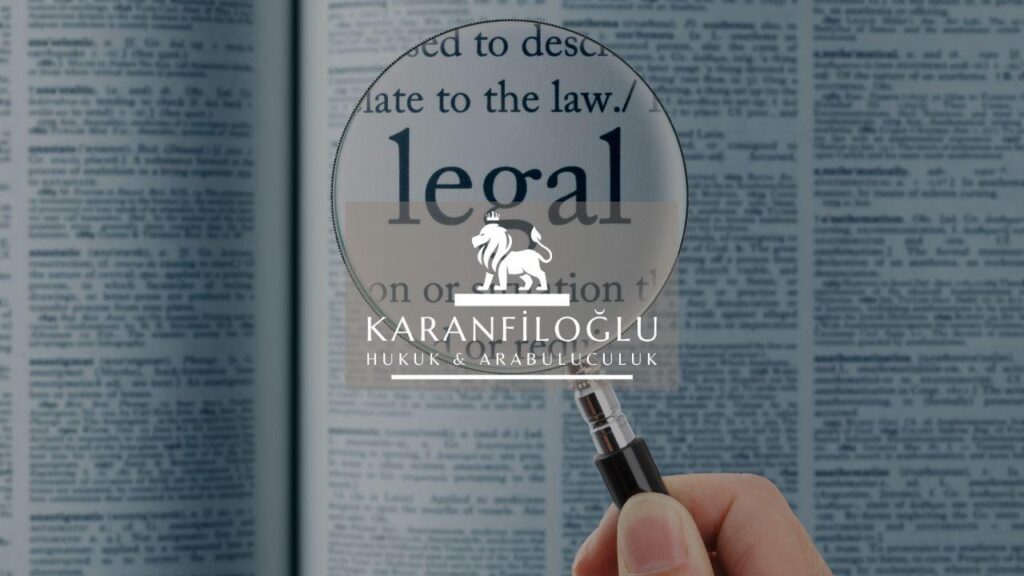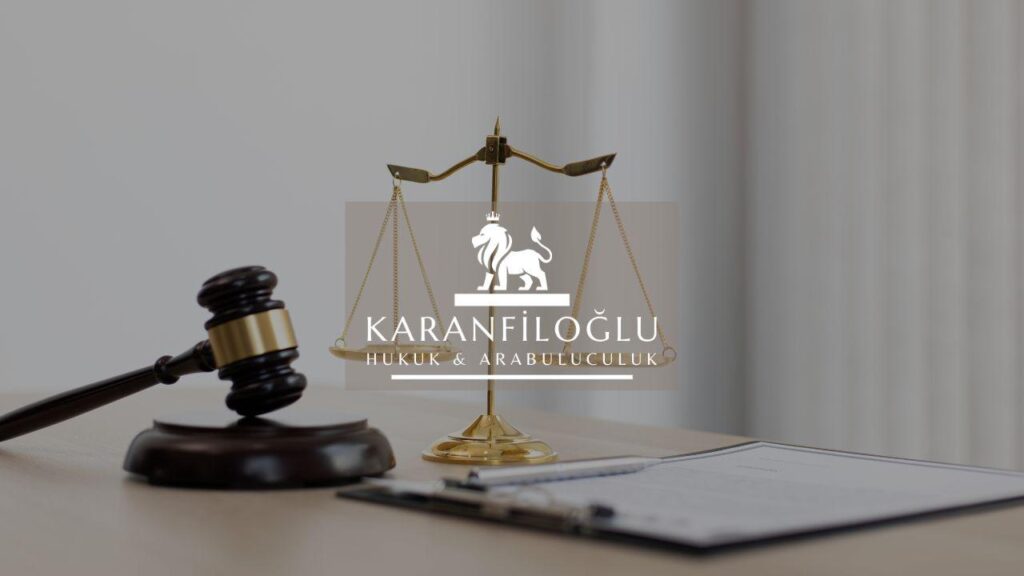Navigating the complexities of Turkish Environmental Law requires a deep understanding of its legislative framework and regulatory mechanisms. At Karanfiloglu Law Office, we provide expert guidance on compliance, dispute resolution, and advisory services pertaining to environmental matters in Turkey. The foundational legislation in this domain is the Turkish Environmental Law No. 2872, which governs the protection of the environment through various preventative and remedial measures. This law is complemented by regulations such as the Environmental Impact Assessment Regulation and the Regulation on Control of Soil Pollution and Sites Contaminated by Point Sources, which outline stringent standards and procedures for environmental protection and rehabilitation. Additionally, Article 56 of the Turkish Constitution enshrines the right to a healthy environment, mandating the state and individuals to improve and protect the natural environment. Our experienced team is well-versed in these provisions and stands ready to assist clients in achieving compliance and resolving environmental disputes efficiently.
The Legal Framework of Environmental Protection in Turkey
The legal framework for environmental protection in Turkey is rooted in the Turkish Environmental Law No. 2872, which serves as the principal legislation governing environmental matters. This comprehensive law encompasses various aspects of environmental protection, including air and water quality, noise pollution, and waste management. Additionally, it establishes the framework for Environmental Impact Assessments (EIA), mandating that certain projects undergo rigorous evaluation to assess their potential environmental impact before proceeding, as detailed in the Environmental Impact Assessment Regulation. Complementing these statutes, the Regulation on Control of Soil Pollution and Sites Contaminated by Point Sources lays down detailed procedures for soil remediation and the management of contaminated sites. These legislative instruments are further enforced by Article 56 of the Turkish Constitution, which stipulates the entitlement to a healthy environment and obliges both the state and its citizens to safeguard and enhance the natural environment.
In addition to foundational legislation, Turkey’s environmental legal framework includes specialized laws and regulations that address specific environmental concerns. For instance, the Law on the Encouragement of Investments and Employment No. 5084 and the Renewable Energy Law No. 5346 provide incentives for sustainable energy projects, aiming to reduce the nation’s carbon footprint and promote the use of renewable resources. The Water Pollution Control Regulation sets forth detailed guidelines on preserving water quality and managing wastewater, while the Regulation on the Management of Waste Batteries and Accumulators focuses on minimizing hazardous waste and promoting recycling. Furthermore, the Regulation on the Management of Packaging Waste emphasises the principles of waste minimization and resource efficiency. The effective enforcement of these regulations is overseen by the Ministry of Environment, Urbanization and Climate Change, which has the authority to impose administrative sanctions and take necessary measures to ensure compliance.
A key component of Turkey’s environmental regulatory framework is the establishment of penalties and enforcement mechanisms to ensure compliance with environmental laws. Under the Turkish Environmental Law No. 2872, entities found violating environmental standards can face significant administrative fines, as stipulated in Articles 20 and 21. Additionally, criminal sanctions, including imprisonment, can be imposed for serious offenses under articles such as Article 26 of the same law. The Ministry of Environment, Urbanization and Climate Change is empowered to conduct inspections and audits to monitor compliance, as per Article 14 of the Environmental Inspection Regulation. These measures are designed not only to penalize non-compliance but also to deter potential violations and encourage proactive environmental stewardship. At Karanfiloglu Law Office, we help our clients navigate these stringent regulations by offering comprehensive compliance reviews, aiding in the development of environmental management systems, and representing clients in administrative and judicial proceedings related to environmental infractions.
Key Regulatory Bodies and Their Roles in Turkish Environmental Law
In the sphere of Turkish Environmental Law, the Ministry of Environment, Urbanization, and Climate Change plays a pivotal role as the principal regulatory body tasked with overseeing environmental policy and enforcement. This ministry is responsible for administering and ensuring compliance with the core legislative instruments such as Turkish Environmental Law No. 2872 and accompanying regulations. For instance, the General Directorate of Environmental Management within the ministry is specifically mandated to execute policies related to pollution control and sustainable environmental practices. Moreover, specialized agencies like the General Directorate of State Hydraulic Works and the General Directorate of Forestry also contribute significantly by regulating aspects related to water resources and forest management, respectively. Together, these bodies form a comprehensive framework for environmental governance designed to uphold high environmental standards, supported by stringent enforcement mechanisms and periodic audits.
One of the vital components of Turkish environmental governance is the Environmental Impact Assessment (EIA) process, mandated by the Environmental Impact Assessment Regulation. The EIA Regulation, in accordance with Article 10 of Turkish Environmental Law No. 2872, requires project developers to evaluate the potential environmental effects of their projects before obtaining approval. This rigorous process is overseen by the Ministry of Environment, Urbanization, and Climate Change, which reviews EIA reports and conducts public consultations to ensure transparency and public participation. Projects that fail to receive a positive EIA report cannot proceed, thereby acting as a preventive measure against significant environmental harm. Additionally, the Regulation on Control of Soil Pollution and Sites Contaminated by Point Sources mandates the assessment and remediation of contaminated lands, placing responsibility on both governmental bodies and private entities to restore affected sites to a safe condition.
In addition to the aforementioned regulatory bodies and mechanisms, enforcement of Turkish Environmental Law also involves coordination with local authorities and municipal institutions. Local governments are empowered under various legislative provisions to implement environmental policies at the regional and local levels, ensuring adherence to national standards while addressing specific local environmental issues. Municipalities, for instance, play a crucial role in waste management, air quality monitoring, and the maintenance of green spaces under frameworks such as the Regulation on Control of Air Pollution from Heating and the Regulation on Landfill Sites. Collaboration between national and local entities fosters a cohesive approach, enhancing the effectiveness of regulatory measures and providing a multi-layered oversight mechanism. At Karanfiloglu Law Office, we work meticulously with both national regulators and local authorities to ensure our clients meet all requisite environmental standards, thereby facilitating a smooth operational landscape that aligns with Turkey’s robust environmental legal framework.
Recent Developments and Case Studies in Turkish Environmental Legislation
Recent developments in Turkish environmental legislation have seen a significant focus on enhancing regulatory frameworks and enforcing stricter compliance measures. Notably, the introduction of amendments to the Turkish Environmental Law No. 2872 and the Environmental Impact Assessment Regulation in recent years aim to address the emerging environmental challenges more effectively. For instance, a 2020 amendment to the Environmental Impact Assessment Regulation (Article 6) introduced more rigorous criteria for project approval, emphasizing the importance of public consultation and transparency. Additionally, recent case studies such as the landmark judicial ruling on the Kaz Mountains mining project highlighted the judiciary’s active role in upholding environmental laws, reflecting a growing trend towards robust environmental governance. These legal reforms and judicial actions underscore the Turkish government’s commitment to sustainable development and environmental protection, ensuring that all projects and activities are conducted in compliance with stringent environmental standards.
Another notable development in Turkish environmental law is the strengthening of regulations related to marine and coastal areas. The Regulation on the Principles of Risk Assessment and Emergency Response Planning for Marine Pollution by Oil and Other Harmful Substances, introduced in 2019, mandates comprehensive risk assessments and response strategies for potential marine pollution incidents (Article 12). This regulation aims to mitigate the adverse effects of oil spills and other hazardous substances on Turkey’s extensive coastlines and marine ecosystems. A recent case illustrating the enforcement of these regulations is the 2021 enforcement action against a shipping company responsible for an oil spill in the Sea of Marmara, where authorities imposed substantial fines and mandated restoration activities in accordance with Article 8 and 13 of the Turkish Environmental Law No. 2872. These measures demonstrate a proactive approach towards protecting marine environments and highlight the importance of rigorous compliance with environmental regulations in safeguarding Turkey’s natural resources.
In addition to these legislative and judicial advancements, collaborative initiatives between the public and private sectors are playing a crucial role in bolstering environmental protection in Turkey. The Zero Waste Project, initiated under the auspices of the Ministry of Environment and Urbanization and enacted by the Regulation on Zero Waste (2019), represents a pioneering effort to promote sustainable waste management practices across various industries (Article 5). This initiative, supported by both public organizations and private enterprises, focuses on reducing waste generation, encouraging recycling, and implementing efficient waste collection systems. As a testament to its impact, numerous municipalities have adopted comprehensive zero waste strategies, successfully reducing landfill usage and optimizing resource recovery. Furthermore, the private sector’s involvement in environmental sustainability is evident in the adoption of green business practices and corporate social responsibility programs, which align with the regulatory goals set forth by Turkish environmental law. These collaborative efforts underline the synergy between regulatory oversight and active participation from all societal stakeholders in achieving long-term environmental sustainability.
Disclaimer: This article is for general informational purposes only and you are strongly advised to consult a legal professional to evaluate your personal situation. No liability is accepted that may arise from the use of the information in this article.







